|
Biography Xingwei Wang, professor and doctor supervisor, is a recipient of the National Outstanding Youth Science Foundation, a recipient of the State Council Special Governmental Allowance, a New Century Outstanding Talent of the Ministry of Education, an Outstanding Science and Technology Worker of Liaoning, a Distinguished Professor of Xingliao Program, His main research interests include Internet, cloud computing and cyberspace security. He has been awarded two second-class prizes of National Scientific and Technological Progress, two first-class prizes of Scientific and Technological Progress of the Ministry of Education, one first-class prize of Science and Technology of China Computer Society, one first-class prize of Science and Technology of China Communication Society, one second-class prize of Technical Invention of the Ministry of Education, one second-class prize of Technical Invention of Liaoning Province, and one second-class prize of Natural Science of Hunan Province; he has published more than 100 papers in prestigious academic journals, such as IEEE Transactions, and in famous academic conferences, such as IEEE ICDCS, and more than 100 papers are included in SCI; 9 academic books; 27 national invention patents; and more than 20 awards for talent cultivation at national and provincial levels. He is currently Vice President of Northeastern University and Deputy Director of the Academic Committee of Northeastern University. Topic Deep cross-disciplines and high-quality construction of high-level disciplines Abstract In-depth cross-disciplines is a strategic choice and an inevitable path to build high-level disciplines with high quality and improve the quality of independent training of talents. The report introduces the background and concept of cross-disciplines, explains the importance of establishing a "three-in-one" synergistic development of education, analyzes in-depth cross-disciplines as an important strategic pivot for the construction of a first-class university, summarizes and condenses the paradigm of cross-fusion of disciplines and cases, and introduces the practice and experience of Northeastern University in the depth of cross-disciplines. It summarizes and condenses the paradigms and cases of cross-fusion construction, and introduces the practice and experience of Northeastern University in deep cross-disciplines. |
|
Biography Liao Xiaofeng, professor and doctoral supervisor, IEEE Fellow, AAIA Fellow, "Yangtze River Scholars" Distinguished Professor of the Ministry of Education, "One Hundred Million National Talents of the New Century", National Excellent Postdoctoral Fellow, Ministry of Education, Excellent Talents of the New Century, Director of the Key Laboratory of Trusted Service Computing for Information Physics Society of the Ministry of Education. He has been engaged in the research of dynamical system theory of artificial neural networks, chaotic cryptography, cloud security and big data privacy protection. In the past 30 years, he has published more than 400 papers in journals, including more than 25,000 SCI citations in international journals, and the current H-index is 85 (Google Scholar). He has been listed in Elsevier China Highly Cited Scholars in Computer Science for 9 consecutive years. He has received 8 natural science awards from the Ministry of Education and Chongqing Municipality, 6 authorized patents. In recent years, he has completed nearly 30 national and provincial research projects. He has served as the chairman and program committee member of more than 10 international conferences, and he is the associate editor of international journals such as Dig Data Mining and Analytics, IEEE Transactions on Neural Networks and Learning Systems, and Journal of Electronics, and the invited reviewer of more than 30 first-class international journals. Topic Optimization and Security for Distributed Machine Learning Abstract This report explores the optimization and security issues of distributed machine learning, focusing on the work done by our team in this area. With the popularity of big data and machine learning applications, distributed machine learning has become one of the key techniques to address large-scale data processing and modeling. However, distributed machine learning also faces many optimization and security challenges. In terms of optimization, distributed machine learning needs to deal with large-scale data, as well as the complexity of synchronization and communication among different computing nodes. To address these issues, our team proposes many optimization strategies and algorithmic frameworks, such as gradient tracking, stochastic gradient, and asynchronous execution, which can effectively improve the efficiency and performance of distributed machine learning. In terms of security, distributed machine learning faces threats such as data privacy leakage, model leakage and malicious attacks. To protect the data and model security, the team proposes many security techniques and mechanisms, such as cryptography, differential privacy, multi-party computation, etc. These methods can effectively protect the privacy and security of data and models. |
|
Biography Dr. Shijin Wang, a full senior engineer, is an adjunct professor at the University of Science and Technology of China. He is currently the Vice President of KDDI, Executive Director of AI Research Institute, and Deputy Director of the National Key Laboratory of Cognitive Intelligence. Dr. Wang has rich experience in core technology research and achievement transformation in the field of artificial intelligence, and has achieved a series of international leading research results, won more than 30 international competitions, and was awarded the First Prize of Anhui Scientific and Technological Progress, the First Prize of Wu Wenjun Award for Scientific and Technological Progress in Artificial Intelligence, and the China Association for Science and Technology's Outstanding Young Achiever Award for Achievement Transformation, etc. On May 6th, 2023, Xunfei's StarFire, a cognitive grand model researched and developed by him, was successfully released, which was highly praised by the industry. Topic Technological Steps and Reflections on Educational Applications of Large Models of Cognitive Intelligence Abstract Since the release of ChatGPT, the technology of Cognitive Intelligence Grand Model has become the "dawn" of general artificial intelligence, and is rapidly evolving, and has also set off a new craze in the world. This report firstly explains the cognitive intelligence big model technology, then introduces the research foundation and technical framework of Xunfei's StarFire big model, and finally introduces the exploration of the application of StarFire big model in the field of education. |
|
Biography Xiaoyong Hu, the professor and doctoral supervisor, executive vice president of the Institute of Artificial Intelligence in Education of South China Normal University, and deputy director of the College of Educational Information Technology, deputy director of the Institute of Basic Education and Informatization of Guangdong Province. He serves as the secretary-general of the Educational Technology Specialty Teaching Instruction Sub-committee of the Ministry of Education, and is an expert of the Ministry of Education's Industry-University Cooperation Collaborative Educational Training and Virtual Teaching and Research Room Construction Project. Focusing on the theory and policy of education informatization and artificial intelligence in education, he has presided over national projects such as Research on Teacher Portrait and Application in the Field of Artificial Intelligence, the virtual teaching and research room of the Ministry of Education's Research on Teachers' Intelligent Educational Literacy, and a national first-class course on the Application of Artificial Intelligence in Education, which was awarded the second prize for the national teaching achievements. Topic A new generation of artificial intelligence empowers the high-quality development of education Abstract The development of the new generation of artificial intelligence is as volatile as a tidal wave, and education is facing major opportunities and serious challenges. This report starts from the following question: (1). Existential Crisis: Will Teachers be Replaced by AI? (2). Digital Transformation and Educational Change: the needs of the times and the development of the field; (3). Intelligent Upgrading: cultivating excellent teachers in the age of intelligence; (4). Systematic Construction: educational AI research service intelligent upgrading, and other four aspects of the theoretical and practical research results of the team of educational artificial intelligence. |
|
Biography Prof. Aimin Zhou is the dean of the School of Computer Science and Technology, East China Normal University (ECNU), the director of the Shanghai Institute of Intelligent Education (SIIE) of ECNU, the deputy director of the Intelligent Education Laboratory of ECNU under the Ministry of Education (MOE), and the head of the IV Peak Discipline (Intelligent Education) in Shanghai. His main research areas include evolutionary optimization and learning, interpretable machine learning, and intelligent education. He has published more than 40 academic papers in SCI Zone 1/CCF Class A journals and conferences, and the related results have accumulated more than 8200 Google Scholar citations. He serves as an associate editor of the journal Swarm and Evolutionary Computation, an editorial board member of Complex & Intelligent Systems, and an associate editor of Chinese Journal of Electronics. He was awarded the title of Chinese Highly Cited Scholar by Elsevier 2020-2022, and the Second Prize of Excellent Teaching Achievements in Shanghai Higher Education (Undergraduate Education) in 2022. Topic Smart Education: Exploration and Practice Abstract In recent years, the rapid development of artificial intelligence has brought great challenges and brand-new development opportunities to education. East China Normal University has combined the advantages of our disciplines to form the Shanghai Institute of Intelligent Education, which conducts interdisciplinary teaching and research activities to promote the modernization and development of education by taking AI as a core element to promote educational change. Through cooperation with relevant departments and AI head enterprises, we are committed to building an intelligent education ecology that integrates from theoretical research, technological research and development, and application landing, realizing the integration of industry, academia, and research, aiming to build a highland of intelligent education in Shanghai and the country. The report will share our initial exploration and practice in intelligent education research, including the overall construction idea of intelligent education, specific research work and effectiveness in the dimensions of teaching, learning, management and evaluation. |
|
Biography Dr. Minjuan Wang is Professor and Program Head of Learning Design and Technology (LDT) in the School of Journalism and Media Studies at San Diego State University and Editor-in-Chief of the IEEE Transactions on Learning Technologies (TLT). Dr. Wang teaches Methods of Inquiry, Designing and Developing Learning for the Global Audience, and Mobile Learning Design. Her research specialties are multidisciplinary, focusing on learning across the Metaverse, Cross-Reality (XR) and Immersive Learning, AI in education, and the sociocultural aspects of learning design and the use of technology. She has been collaborating with scholars worldwide on research and development projects. She is a high-impact author, an internationally recognized scholar, and has keynoted more than 35 international conferences. In addition to serving as the EiC for IEEE-TLT, she co-chairs the Education Society’s newly established Technical Committee on Immersive Learning (TC-ILE) and co-organizes several IEEE’s flagship conferences including TALE and Intelligent Environments. Topic Metaverse and AIGC in Teaching and Entrepreneurship Education Abstract Since 2022, the Metaverse has been a hot topic in the global education space, and how to effectively design and leverage it in teaching and learning is critical to optimizing the learning experience. At the same time, generative artificial intelligence (AIGC) such as ChatGPT has come to the forefront, and the theories about its threat activities such as teaching and training continue to generate heated debates around the world. This talk will focus on these two hot topics, demonstrate their applications in teaching and learning with real-world examples, and illustrate the opportunities and challenges posed by both through the lens of innovation and entrepreneurship. |
|
Biography Tao Huang is a professor and doctoral supervisor at Central China Normal University, deputy director of the National Engineering Research Center for Educational Big Data Application Technology, National Engineering Research Center for Digital Learning, and academic vice president of Ningxia Normal University. He has presided over more than 10 national projects. He has independently developed a learning big data analysis and service system, which has been applied in Suzhou, Wuhan, Ningxia and other educational digitalization demonstration zones, and the research results have been published in IEEE Transactions on Learning Technologies, Journal of Computing, China Electrification Education, Research on Electrification Education and other important journals at home and abroad, more than 50 high-level papers, published 4 monographs, more than 20 national invention patents, more than 30 computer software copyrights, and as a core member of the Ministry of Education won the first prize of the Ministry of Education's Scientific and Technological Progress Award, and the first prize of Hubei Province Scientific and Technological Progress Award, and the second prize of National Teaching Achievements. Topic A Study of Learners' Cognitive Diagnosis for Spatial-Temporal Evolution Abstract The digitalization of education is an important breakthrough for China to open up a new track of education development and shape a new advantage in education development. Cognitive diagnosis is the key to portraying learning subjects and carrying out personalized learning in the digital education environment, and AI-based cognitive diagnosis will play a more important role in the future, providing more effective support for intelligent education combining scaling and personalization. The report compiles the current research status of cognitive diagnosis in digital education environment, summarizes the challenges and problems faced by cognitive diagnosis based on AI technology, puts forward the theory, method and application system of cognitive diagnosis oriented to spatial-temporal evolution, focuses on the achievements made by the research team in recent years in the method and application of cognitive diagnosis oriented to spatial-temporal evolution and highlights the important role of cognitive diagnosis in digital education based on the application practice of intelligent education. It also highlights the important role of cognitive diagnosis in digital education based on intelligent education application practice. Finally, the report provides an outlook on future research trends in the field of cognitive diagnostics. |
|
Biography Xiaodong Liu is a professor (second class) and doctoral supervisor at Dalian University of Technology. He has published more than 200 papers in major academic journals both at home and abroad, with more than 150 papers indexed in SCI, and the total frequency of Web of Science citations is 3,701, and the highest number of citations for a single paper is 554. According to Mendeley Data, a division of Elsevier, the world's largest academic publisher, the ranking data of 100,000 scientists in all disciplines in the world published in October 2020 shows that he is in the top 2% of scientists in the field of artificial intelligence in the world. In addition, he has published a monograph in English in Springer-Verlag, and supervised more than 30 doctoral students, of which more than 20 have obtained their doctoral degrees. He is currently a member of the editorial board of Information Sciences and an associate editor of Mathematical Foundation of Computing, and has been engaged in the core mathematical theory, algorithms and implementation of artificial intelligence for nearly 30 years. Topic A New Approach to Artificial Intelligence Based on Axiomatic Fuzzy Sets and Its Algorithm for Integration of Sensing, Cognition and Decision Making Abstract Oriented to the core scientific problems of interpretable and generalizable artificial intelligence, we intend to draw on the mechanism of human beings using perception and cognition to abstract concepts, form logic, extract rules, and continuously evolve knowledge, and explore new interpretable and generalizable artificial intelligence methods based on axiomatic fuzzy sets (AFS), knowledge graphs, fuzzy cognitive graphs, Bayesian nets, and time series, so as to construct an algorithm framework of perception, cognition and decision-making integration, in which the logic of human minds can be analyzed and computers can process. To build a framework of integrated algorithms for perception, cognition and decision-making, we did the following three works: (1) semantic attribute perception of multimodal data and its AFS structure representation; (2) new interpretable and generalizable artificial intelligence method based on AFS theory; (3) integrated algorithms for perception, cognition and decision-making. |
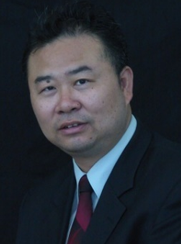 Xingwei Wang (Northeastern University)
Xingwei Wang (Northeastern University) Xiaofeng Liao (Chongqing University)
Xiaofeng Liao (Chongqing University)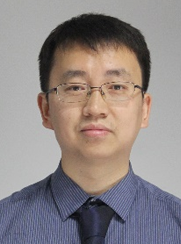 Shijing Wang (iFLYTEK CO.LTD.)
Shijing Wang (iFLYTEK CO.LTD.)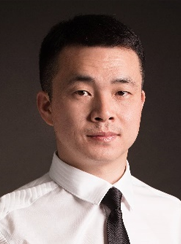 Xiaoyong Hu (South China Normal University)
Xiaoyong Hu (South China Normal University)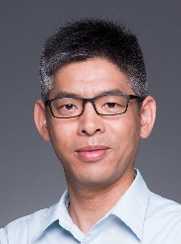 Aimin Zhou (East China Normal University)
Aimin Zhou (East China Normal University) Minjuan Wang (San Diego State University)
Minjuan Wang (San Diego State University)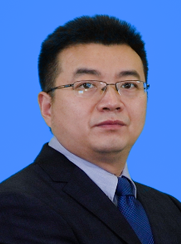 Tao Huang (Central China Normal University)
Tao Huang (Central China Normal University)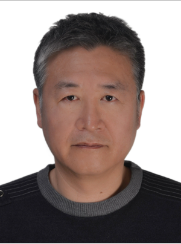 Xiaodong Liu (Dalian University of Technology)
Xiaodong Liu (Dalian University of Technology)